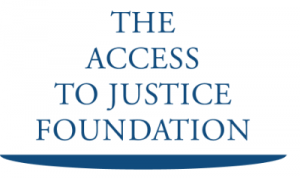Health Justice Partnerships Insights and Learning Session
This session welcomed an audience of both advice sector and health care providers with speakers Dame Hazel Genn and Dr Sarah Beardon both from University College London to present their evidence, research, and learning generated from over a decades worth of work exploring the link between Health and Justice.
The session also highlighted frontline experiences from Maternity Action in implementing Health Justice Partnerships.
The evidence highlights that Health Justice Partnerships are worth resourcing, and require sustained investment, cross-sector collaboration, and increased understanding of the issue.
This session focused on the partnerships themselves, what the key criteria for success are, and what makes them challenging, and it explored why scaling this evidently effective solution is proving challenging.
Key learnings
- Health Justice Partnerships (HJPs) are collaborations between health care professionals and free social welfare services designed to address the determinants of health and provide holistic services to low-income, vulnerable individuals.
- HJPs have the potential to improve health and wellbeing by reaching those most in need, improving living conditions, supporting healthcare teams, resolving welfare rights issues, and increasing staff skills and understanding of legal interventions that improve health outcomes.
- Successful delivery of HJPs depends on effective collaboration between medical and legal teams, as well as securing sustainable funding from stakeholders who recognise the value and impact of these partnerships.
- HJPs have shown positive outcomes in reducing stress, resolving work issues, and increasing income for users. They make it easier for users to access advice, save NHS time, and support objectives in the NHS Equity and Equality Guidance by enabling teams to support patients with wider social issues that impact health and wellbeing.
- To facilitate the development, growth, and sustainability of HJPs, it is important to develop funding structures, communicate the impact of advice in promoting health and reducing inequalities, strengthen relationships between legal and medical professionals, and explore shared core values between the two fields.
Meeting materials
- Insights and Learning Session - Health Justice Partnerships Agenda
- Insights and Learning Session - Health Justice Partnerships Meeting notes
- Hazel Genn's presentation slides
- Sarah Beardon's presentation slides
- Maternity Action's presentation slides
- Health Justice Partnerships in England, A study of implementation success
- DRAFT Health Justice Partnerships Implementation Guide
Other useful materials, research, and reports
- Implementation of Health-Justice Partnerships: Integrating welfare rights advice services with patient care
- ‘Going Deeper’ - The Invisible Hurdles Stage III Research Evaluation Final Report
